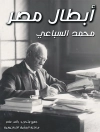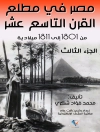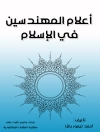Since its inception, NASA has participated in over 4, 000 international projects, yet historians have almost entirely neglected this remarkable aspect of the agency’s work. This groundbreaking work is the first to trace NASA’s history in a truly international context, drawing on unprecedented access to agency archives and personnel.
Spis treści
PART I: 50 YEARS OF NASA AND THE WORLD (John Krige) 1. Introduction and Historical Overview: NASA’s International Relations in Space PART II: NASA AND WESTERN EUROPE (John Krige) 2. NASA, Space Science and Western Europe 3. Technology Transfer with Western Europe: NASA-ELDO Relations in the 1960s 4. European Participation in the Post-Apollo Program, 1969-70: The Paine Years 5. European Participation in the post-Apollo Program, 1971: The US Begins to Have Second Thoughts – and So Do the Europeans 6. European Participation in the post-Apollo Program. 1972. Disentangling the Alliance. The Victory of Clean Interfaces PART III: NASA AND THE SOVIET UNION / RUSSIA (Angelina Long Callahan) 7. Sustaining Soviet-American Collaboration, 1957-1989 8. Russian-American Cooperation in Space: Privatization, Remuneration and Collective Security PART IV: NASA’S RELATIONS WITH JAPAN AND INDIA (Ashok Maharaj) 9. An Overview of NASA-Japan Relations: From Pencil Rockets to the International Space Station 10. NASA and the Politics of Delta Launch Vehicle Technology Transfer to Japan 11. An Overview of NASA-India Relations 12. Satellite Broadcasting in Rural India: The SITE Project PART V: INTO THE 21ST CENTURY (John Krige) 13. Space Collaboration Today: The ISS 14. The Impact of ITAR (International Traffic in Arms Regulations)
O autorze
John Krige is Kranzberg Professor in the School of History, Technology and Society at the Georgia Institute of Technology, USA, and the author of American Hegemony and the Postwar Reconstruction of Science in Europe (2006). An acknowledged expert on the history of the space program, he has appeared in recent years on American Public Radio, the BBC, and Swiss Radio.
Angelina Long Callahan is Associate Historian at the Naval Research Laboratory in Washington, DC, USA, where she wrote her dissertation on meteorological satellites and the Cold War. She has a Ph D from the Georgia Institute of Technology’s School of History, Technology, and Society. Her other research pursuits include the history of 1920-30s drone research and development and technological roots of the Vanguard satellite project.
Ashok Maharaj has a Ph D from the Georgia Institute of Technology’s School of History, Technology, and Society, USA. He lives and works in Chennai, India.












